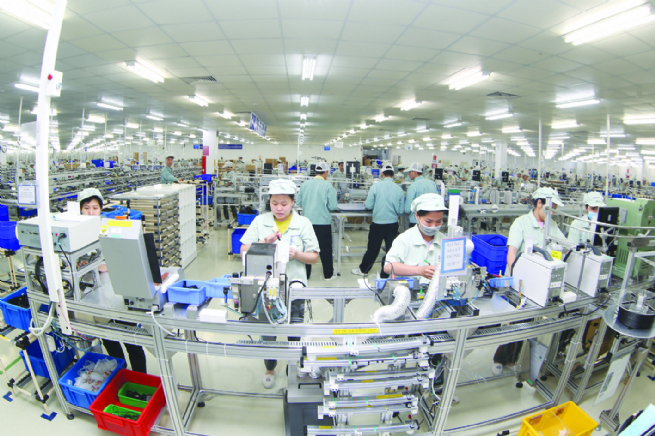Toward Higher-Quality FDI Generation
FDI enterprises have worrying downsides in addition to positive contributions they have made. Many provinces and cities in Vietnam, especially big economic centers, have increasingly inadequate room for development, pushing the country to pick up a new higher-quality investment wave.

Addressing the Connection for Development Forum 2021 themed “Seizing opportunities for localities and businesses” on April 26, VCCI President Vu Tien Loc said, right from the first step of Vietnam’s reforms, the country attached great importance to the foreign investment sector. The legal framework for the establishment of a foreign-invested enterprise also predated the legal framework for domestic enterprises and companies. This is a very distinctive feature of the Vietnamese legal system.
Vietnam has enacted the foreign investment law for 33 years. The country has presented awards in honor of outstanding foreign companies in Vietnam for 20 years. The foreign-invested business sector has become an important economic entity in Vietnam and Vietnam is one of the most successful economies in the world in attracting a large amount of global investment funds.
Currently, 136 economies are investing US$400 billion in Vietnam, larger than the annual GDP of Vietnam. This is a very significant figure.
FDI firms have made great contributions to budget revenue and employment, helped ensure social security, and contributed to poverty reduction in Vietnam. They are also the driving force for the industrialization process in Vietnam, the main driver of export growth and the key made-in-Vietnam link in global supply chains.
Over 50% of annual industrial production output is made by the foreign direct investment (FDI) sector and over 70% of exports are generated by this sector. FDI firms employ millions of workers.
But, there are also downsides. One-third of a century is long enough for an underdeveloped economy to take off and become a so-called dragon or tiger, to reach a high level in the global supply chain. But so far, for FDI firms, Vietnam is still a processing location site for labor-intensive fields like textile and garment, leather and footwear and electronics. 60-70% of machinery, inputs and materials are imported from abroad. The added value generated in Vietnam is not high.
In general, FDI firms are not symbiotic much with domestic private companies. The effect of their technology, governance and business culture is not strong. Some FDI firms even cause environmental pollution, mainly using cheap natural resources and human resources, taking advantage of government incentives, and contributing inadequately to the local budget. Notably, some FDI firms violate Vietnamese laws and commit commercial fraudulence.
Corporate mergers and acquisitions are taking place strongly. If there are not good control measures, there is risk of economic security problems in Vietnam.
"We are looking for a higher-quality FDI generation capable of synergizing with the domestic economy of Vietnam and helping ensure the self-reliance of Vietnamese economy. We have the opportunity to embrace the fourth FDI generation, associated with the Fourth Industrial Revolution,” Dr. Loc emphasized.
This wave is certainly not only about quantity, he said, adding that we will not run after billion-dollar projects unless they help improve the development quality of Vietnam, create more decent jobs for people, synergize with domestic enterprises, spread technology, modern governance and business culture, and create greater added value for the Vietnamese economy.










